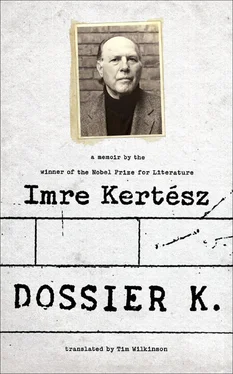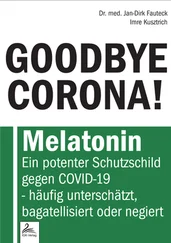That attempt obviously came in the post-war period, and although I would be curious to know what you read then, let’s stick to chronological order. You have hardly said anything about your father, for example .
My father was a cherishable, slim, handsome man with Levantine features and curly, jet-black hair that stubbornly resisted any attempt to comb it. He was a fighter who carried on a struggle that was unknown to me on some distant battlefield. He was usually on the point of losing with my mother. Even I must have noticed some of that during the short period when the three of us were together. Victrix causa deis placuit, sed victa Catoni —The conquering cause was pleasing to the gods, but the conquered one to Cato, the Latin saw goes. Well, the latter goes for a child as well. The failure he suffered against Mother totally won my heart over, if not my mind, and this ambivalence shadowed me later on as well. But let’s stay with my father. On returning home from his daily skirmishes, in the evening he would complain about his worries and his stomach pains. To stand his ground he would have needed to put on a bit of weight. Every now and again he would haul out a billycan of goose dripping that was being kept for the winter. Have you seen the sort of thing?
You mean one of those blue or red enamel cans with a lid that was locked with a fastener .
Blue: our billycan was blue. That contained the goose dripping, which had a pale-red tint from the paprika with which it had been roasted, and there would also be occasional limp onion rings dotted about in it. Father ate the dripping by the spoonful like Genghis Khan. He was also very fond of cocoa, with garlic on toasted bread: that was Sunday breakfast for him as long as he lived on Tömő Street. My grandmother would bring it to him while he was still in bed, and he would crunch it loudly between his healthy teeth. As a boy of four of five, I would sit beside him in the bed and enjoy the sound of his crunching, the way the aroma of garlic would spread around the bed and through the whole room. I would marvel at him in the barber’s shop when he had his blue bristles shaved. He would throw his head back and the razor-blade would work all around his neck. He had a huge Adam’s apple that would jiggle up and down under the razor; I would hold my breath as I watched to see the outcome. On Sunday mornings he would take me for a walk: we would stroll to the Oktogon and back. Those walks were very dispiriting for me; I would be bored to tears and feel dizzy, dazed by all the passersby, the Sunday crowds of people. Budapest was a truly fine city in those days; it still is today, but then it was clean as well. The elegance of those Sundays! The ladies’ hats! The Changing of the Guard up at the Castle in Buda! The promenades alongside the Danube! In springtime Father would take me on a pleasure steamer, the Sophia . I would race to grab seats in the “bows.” Father would produce a miniature chess set from his pocket and pin the tiny pieces into the holes by their little pegs. At every turn some surprise would be in store, with adventures lying in wait at every street corner. On the Grand Boulevard, the outer ring road, a bulldog man would put in an appearance every Sunday, sauntering stiffly as he led five or six identical-looking bulldogs on a multiple lead, with an identical pipe dangling from the jaws of the identical-looking bulldogs. Odd characters like that existed in Budapest in those days. Sandwich-board men would pass us by with their slowly plodding steps. In a shop window of the Paris Department Store a chef with a white hat tossed pancakes up in the air from his frying pan. He would always catch them and fry them, and they cost only ten fillérs apiece, 7except that my father would not always have ten fillérs on him. Then I would be most indignant, whereupon he would explain: “I’m stony broke. Business just isn’t going well.” That would crush all arguments, on top of which I had no idea what he meant: where was business supposed to go from Koszorú Street, 8which was its normal place?
A timber merchant’s, if what you write in Fatelessness is an accurate guide .
Fairly accurate. It was a spacious cellar property in which timber planks were stockpiled in a certain order. There was an “office” consisting of a glass cage at the foot of the steep flight of steps, but in Fatelessness I made it sound a bit posher than it was. There I describe the family as very middle-class, whereas we were much more like lower-middle-class, petit-bourgeois. Father was not able to pay for the stock that he held, so he received the planks “on commission” from the wholesaler, a man by the name of Mr. Galambos, who had a lumberyard somewhere in Újpest 9—an enormous open-air area with wisps of fog swirling over endless stacks of timber, as I saw when Father took me once on a visit. It must have been in the autumn, and the autumn had much the same coloration as Mr. Galambos. He seemed to be made up of the most diverse shades of grey: his suit was grey, he wore a dove-grey hat and, likewise grey, a genuine pair of spats with little buttons on the side. Even his eyes were grey. as was his extraordinarily neat and elegantly groomed moustache. And he always carried on him, who knows where from, a bag of bonbons or boiled sweets to offer one, in much the same way as one man will offer another a cigarette or cigarillo. That was also the way he shook hands with me, like one man with another, without any hint of a condescending smile or gesture of that kind. I rather think he assisted Father in his business affairs, although I know nothing for sure. In any case, my blood would freeze the instant I heard the word “business.”
Why?
It had sinister implications. Either it was “not going well,” or it was a cause of “concern” for my father — in short, whenever the word “business” sounded that signalled the end of fun and games, and bleakness would take over.
So what part did the man you call Mr. Sütő play in all this?
None at all. Mr. Sütő is an entirely fictitious character who never existed in reality. In reality there was a chap called Uncle Pista, whom my father referred to as “the hand.” “The hand” would help out whenever a “truck-load” came, or in other words whenever a consignment of timber arrived from the wholesaler and had to be unloaded from the horse-drawn cart into the cellar. At other times the “hand” would deliver to our house the wood shavings that we used to stoke the tile stove, but that’s another story that is of no possible interest.
As far as I’m concerned, everything that throws more light on your relationship with your father is of interest. In Kaddish for an Unborn Child you wrote some truly terrible things about him .
One is always unjust in regard to one’s father. One has to rebel against somebody in order to justify our tribulations and our blunders. On one occasion when I was visiting Prague …
I’m sorry, but that’s just an anecdote. Please don’t dodge the question by taking refuge in Prague!
Well anyway, when I was there I saw a photograph of Kafka’s father.
So what?
He was a good-looking man, with a congenial face. Now read what Franz Kafka writes in the Letter to His Father .
I would rather cite something from your Kaddish: “We are always sinners before our father and God.” Then again: “I had need of a tyrant for my world order to be restored … but my father never tried to replace my usurpatory world order with another, one based on our common state of powerlessness, for example.” Also: “Auschwitz manifests itself to me in the image of a father; yes, the words ‘father’ and ‘Auschwitz’ elicit the same echo within me …”
Читать дальше












